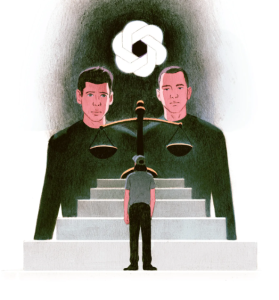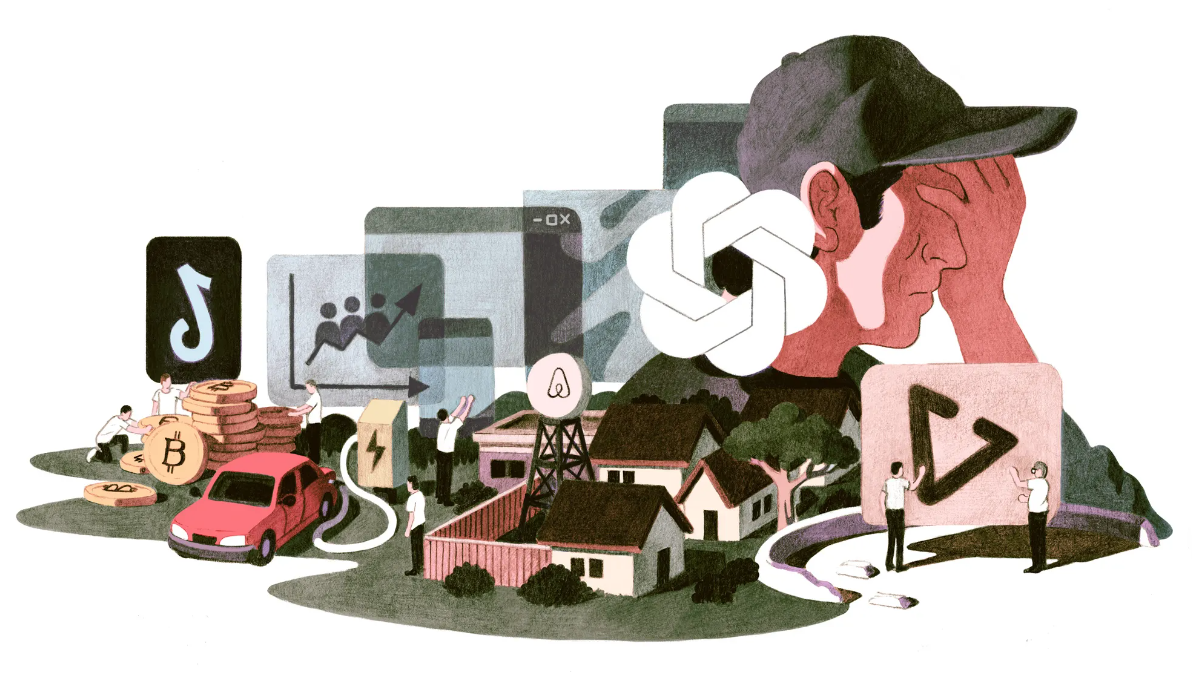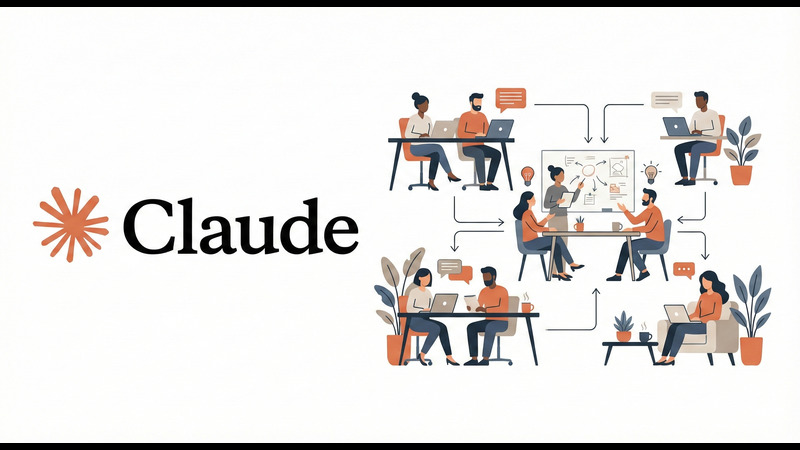Guy Ravine’s Open AI (with a space) owns a trademark and website that OpenAI (no space) wants. What can their lawsuits tell us about the future of AI—and who wins in Silicon Valley?
In Silicon Valley, innovation and competition go hand in hand, but the ongoing legal dispute between OpenAI and a one-man startup, Open AI, sheds light on some uncomfortable truths about power dynamics in the tech industry. At the heart of the battle is Guy Ravine, who registered the domain “Open AI” before Sam Altman and Greg Brockman launched their now-famous company, OpenAI. This legal skirmish raises significant questions about who controls AI’s future, and whether small players stand a chance in an industry dominated by giants.
The Origins of the Dispute
The lawsuit, formally known as OpenAI Inc. vs. Open Artificial Intelligence Inc., revolves around the ownership of the domain name “Open AI” (with a space) and the trademark. Ravine claims that he had been working on a project focused on artificial general intelligence (AGI) long before Altman and Brockman announced OpenAI. Ravine’s vision was centered on creating an open collaboration platform that would benefit all of humanity—AI developed for the public good, not profit.
Ravine asserts that he began pitching his ideas to major tech figures, including Google’s Larry Page and Meta’s Yann LeCun, in early 2015. However, just months later, OpenAI launched, presenting a nearly identical mission to the world. Ravine claims that Altman and Brockman appropriated his ideas, launching OpenAI with far more financial backing and industry connections.

OpenAI’s Rapid Rise and Ravine’s Struggle
OpenAI, with significant backing from Microsoft and other major players, quickly became the leading force in generative AI, developing groundbreaking tools like ChatGPT and Dall-E. By contrast, Ravine struggled to secure funding and attention for his “Open AI” project. Despite owning the domain and trademark, his efforts remained largely overshadowed by the high-profile success of OpenAI.
According to Ravine, he was offered a chance to sell his domain and intellectual property to OpenAI in exchange for donations to a nonprofit research initiative. When negotiations stalled, OpenAI took legal action, filing a lawsuit against Ravine in 2023, accusing him of trying to profit from their brand’s success.
A Fight Over Ideals and Ownership
For OpenAI, this case is about protecting their brand from confusion. They argue that Ravine’s use of the name “Open AI” misleads the public into thinking his project is connected to their renowned company. Ravine, on the other hand, sees the lawsuit as an attempt to erase his contributions to the field and monopolize the AI space.
In his countersuit, Ravine claims that OpenAI has strayed from its original mission of openness. What began as a nonprofit focused on AI for the public good has evolved into a for-profit entity that no longer operates with transparency. Ravine’s filing even suggests that OpenAI should be forced to change its name to “ClosedAI,” reflecting its shift away from the ideals of openness and collaboration.

The Stakes for AI’s Future
At the core of this legal battle is a much larger question: who gets to control AI’s future? Ravine’s fight is not just about a domain name—it’s about the role of small innovators in an industry increasingly dominated by a few powerful companies. OpenAI, with its billions in funding, represents the corporate consolidation of cutting-edge technology. Ravine, on the other hand, represents the underdog, fighting to keep AI open and accessible to all.
As AI continues to advance and become a central part of global progress, this case highlights the challenges faced by smaller players in a highly competitive market. If companies like OpenAI can push out independent innovators like Ravine, what does that mean for the future of AI development?

Conclusion: A David vs. Goliath Story
The OpenAI vs. Open AI case is more than just a trademark dispute—it’s a David vs. Goliath story that raises serious concerns about innovation, competition, and the ethics of AI development. As the legal battle unfolds, it remains to be seen whether Ravine will succeed in his fight, or if OpenAI’s immense resources will prevail.
Ultimately, this case serves as a reminder that the tech world, despite its forward-thinking ethos, often favors the powerful over the innovative. Whether or not Ravine’s claims hold up in court, his fight underscores the larger issue: in the race to develop AI, who gets left behind?



